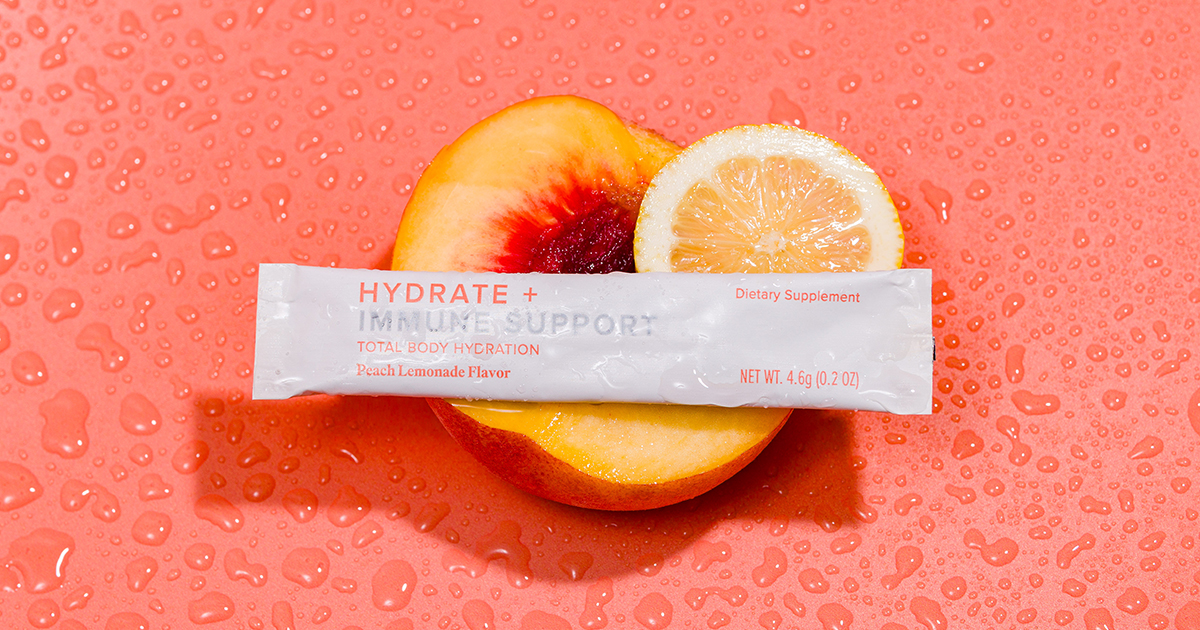High blood cholesterol can have serious consequences for your heart, but healthy lifestyle choices can help put you in control of cholesterol levels.
Cholesterol isn’t all bad. In your body, cholesterol serves several important functions. It’s a building block for cell membranes, an essential part of many hormones, and used by your body to make bile, which is necessary for proper digestion. Even though cholesterol has so many vital functions, you don’t need to consume cholesterol in foods because your body can make all the cholesterol it needs.
While a little cholesterol is essential for good health, it becomes a problem when there is much more than your body can use. Excess cholesterol accumulates in your blood stream and sticks to the lining of blood vessels. This buildup can lead to atherosclerosis, a narrowing and hardening of the arteries that can result in a heart attack, stroke, and other serious complications (1). Although family history plays a part, cholesterol levels in the body are strongly influenced by your diet and physical activity level. This means that healthy lifestyle choices can help you manage cholesterol levels and help to keep your heart healthy (2).
Apart from managing a healthy weight and avoiding smoking, there are several lifestyle choices the American Heart Association recommends to help protect your heart health (2). These are three simple steps from the American Heart Association guidelines that can help you keep your cholesterol levels under control.
1. Choose heart-healthy fats.
The American Heart Association guidelines recommend increasing heart-healthy fats, especially polyunsaturated and monounsaturated fats while limiting unhealthy sources such as saturated fats. Heart-healthy sources of fat include nuts, seeds, and fatty fish. Too much saturated fat is a concern for blood cholesterol levels because your body uses saturated fat to build its own cholesterol. When you eat a meal high in saturated fat, your body’s cholesterol production systems go into overdrive. The American Heart Association recommends limiting saturated fat to seven percent or less of your total calories (2).
2. Get more fiber, especially soluble fiber.
Getting at least the minimum recommended amount of dietary fiber every day is essential for a healthy heart. Some types of fiber, such as viscous soluble fibers found in oats, can be especially helpful for managing blood cholesterol levels. Women should aim for no less than 25 grams per day while men need at least 38 grams per day from foods such as whole grains, beans, peas, and lentils (3). The American Heart Association recommends choosing a dietary pattern that is high in fiber (27-38 grams per day) to protect heart health (2).
3. Exercise for at least 30 minutes a day.
While any amount of exercise has benefits for health, the greatest benefits for maintaining a healthy level of blood cholesterol can be seen with at least 150 minutes per week of moderate to vigorous aerobic activity, such as brisk walking. This works out to be about 30-40 minutes a day, four or five days per week. A higher level of physical activity can have additional benefits for managing cholesterol and overall health, too (2).
Ingredients for Heart Health
Heart Shake Booster adds the right ingredients to complement smart lifestyle choices for heart health. Designed for use with Isagenix shakes, Heart Shake Booster is formulated to help reduce the risk of heart disease by lowering cholesterol levels. †
Heart Shake Booster’s powerful ingredients include plant sterols, pantethine, which is a derivative of vitamin B5, and a blend of other ingredients inspired by a heart-healthy Mediterranean diet.
Plant sterols reduce the amount of cholesterol your body absorbs from foods, helping the body eliminate excess cholesterol (4-6). Because plant sterols are most effective when consumed twice a day with food, Heart Shake Booster is designed to be blended with your favorite Isagenix shake twice daily for a delicious, convenient option to customize your Isagenix System (7).
Smart lifestyle choices, such as being physically active, maintaining a healthy weight, and choosing a heart-healthy diet are essential first steps in keeping cholesterol levels in check. Heart Shake Booster is a convenient choice to complement your heart-healthy lifestyle that may help reduce your risk of heart disease.
†Foods and supplements containing at least 0.65 g per serving of plant sterol esters, eaten twice a day with meals for a daily total intake of at least 1.3 g, as part of a diet low in saturated fat and cholesterol, may reduce the risk of heart disease. A serving of Heart Shake Booster supplies 0.65 grams of plant sterol esters.
References
- Mozaffarian D, Benjamin EJ, Go AS, Arnett DK, et al. American Heart Association Statistics Committee and Stroke Statistics Subcommittee. Heart disease and stroke statistics–2015 update: a report from the American Heart Association. Circulation. 2015 Jan 27;131(4):e29-322.
- Eckel RH, Jakicic JM, Ard JD, et al. American College of Cardiology/American Heart Association Task Force on Practice Guidelines. 2013 AHA/ACC guideline on lifestyle management to reduce cardiovascular risk: a report of the American College of Cardiology/American Heart Association Task Force on Practice Guidelines. J Am Coll Cardiol. 2014 Jul 1;63(25 Pt B):2960-84.
- Institute of Medicine, Food Nutrition Board. Dietary Reference Intakes for Energy, Carbohydrates, Fiber, Fat, Fatty Acids, Cholesterol, Protein, and Amino Acids. Washington, DC: The National Academies Press;2005.
- Mattson FH, Grundy SM, Crouse JR. Optimizing the effect of plant sterols on cholesterol absorption in man. Am J Clin Nutr. 1982 Apr;35(4):697-700.
- Malina DM, Fonseca FA, Barbosa SA, Kasmas SH, Machado VA, França CN, Borges NC, Moreno RA, Izar MC. Additive effects of plant sterols supplementation in addition to different lipid-lowering regimens. J Clin Lipidol. 2015 Jul-Aug;9(4):542-52. doi: 10.1016/j.jacl.2015.04.003.
- Abumweis SS, Barake R, Jones PJ. Plant sterols/stanols as cholesterol lowering agents: A meta-analysis of randomized controlled trials. Food Nutr Res. 2008;52. doi: 10.3402/fnr.v52i0.1811.
- Doornbos AM, Meynen EM, Duchateau GS, van der Knaap HC, Trautwein EA. Intake occasion affects the serum cholesterol lowering of a plant sterol-enriched single-dose yoghurt drink in mildly Hypercholesterolaemic subjects. Eur J Clin Nutr. 2006 Mar;60(3):325-33.





